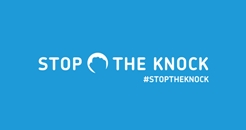 Stop the knock
Stop the knock
From a report by the Money Advice Trust
The Money Advice Trust, the charity that runs National Debtline, has found that the use of bailiffs to collect council tax and other debts has risen 14% in two years, despite government guidance stating that bailiff action should only ever be used as a last resort.
The research finds councils passed £2.3m debts to bailiffs in 2016/17. Bailiffs, also known as enforcement agents, have the right to visit a property to remove and sell goods to repay certain debts, including council tax arrears, parking notices and other debts owed to councils.
However, the Money Advice Trust says that an increasing number of councils are working hard to improve their debt collection practices – and that four in 10 (38 percent) actually reduced their reliance on bailiffs in that time.
More than one in four callers to National Debtline (26 percent) has had Council Tax arrears so far this year – up from just 14 percent in 2007.
The charity’s new report, Stop The Knock 2017, found that council tax debts were passed to bailiffs on 1.38 million occasions between April 2016 and March 2017. Parking notices were passed to bailiffs around 810,000 times, and there were around 50,000 referrals to bailiffs for Housing Benefit overpayments.
The vast majority of local councils surveyed (97 percent) signpost residents in financial difficulty to free debt advice. Almost half of councils (44 percent) have no formal policy for dealing with residents in vulnerable circumstances when collecting debts. Some councils have signed up to the Local Government Association’s joint Council Tax Protocol with Citizens Advice. This aims to help councils prevent residents from getting into arrears in the first place. In addition, 23 councils in England have introduced a policy of exempting residents on the lowest incomes, who receive Council Tax Support, from bailiff action altogether – a step the Money Advice Trust and other charities have long called for.
Money Advice Trust recommend six steps for local councils:
-
Make a clear public commitment to reduce bailiff use over time
-
Review signposting to free debt advice, including phone/online channels
-
Adopt the Standard Financial Statement to objectively assess affordability
-
Put in place a formal policy covering residents in vulnerable circumstances
-
Exempt Council Tax Support recipients from bailiff action (in England)
-
Sign up to the Citizens Advice/LGA Council Tax Protocol and examine the Money Advice Service’s toolkit for working with debt advice agencies
Joanna Elson, chief executive of the Money Advice Trust, said,
"The growing use of bailiffs to collect debts by many local authorities is deeply troubling. Councils are under enormous financial pressure, and they of course need to recover what they are owed in order to fund vital services. However, many councils are far too quick to turn to bailiff action – which we know can seriously harm the wellbeing of residents who are often already in vulnerable situations. It can also push people even further into debt. Bailiff action should only ever be used as a last resort, and can be avoided by early intervention, making sure residents get the free debt advice they need, and agreeing repayment arrangements that are affordable and sustainable."
They also published the results of the research on
an online map where you can check what your local council has done.
Why not contact your council and inform of the report and ask if they can follow the six steps above?
Retweet about this article:
From a report by Money Advice Trust, 21/11/2017